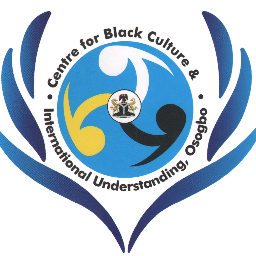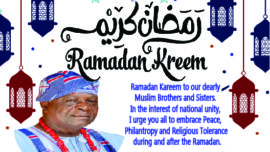About us
CBCIU is a fully autonomous entity, registered with the Corporate Affairs Commission in Abuja, Nigeria. There are also two relevant MoUs between Ulli Beier and UNESCO, and between Federal Government and UNESCO, which clearly affirm the autonomy of CBCIU. It also has an independent governing board, of which two eminent Osogbo artists are members.
The State Government provided the physical facilities for the centre; it was also one of the categorical conditions of UNESCO that the state government would give the centre an annual grant.
The United States Centre for Black Culture and International Understanding (CBCIU), and its parent body in Nigeria are affiliated to UNESCO through the Institute for African Culture and International Understanding, Abeokuta.
CBCIU is an independent Non-Profit organization which has the responsibility of promoting inter-religious and cultural dialogues, as well as peace and International Understanding. CBCIU has UNESCO’s mandate to promote knowledge-sharing, uphold diversity, dignity, tolerance, pluralism and democratic principles – especially in the context of globalization.
CBCIU is accordingly concerned with special and warranted efforts necessary to defend peace in the minds of the populace, highlight efforts at preventing evils of war, hatred and all forms of inequalities and unfairness. CBCIU is also working towards getting the populace to embrace peaceful solutions rather than bitterness, confrontation and violence. It is also concerned about improvement in the living standard of the populace through good governance, globalization and the utilization of cultures and religions as agents of change.
CBCIU has since its inception in January 2009 boosted research activities, particularly about the black race.
CBCIU has also promoted interactions among cultures. It has prosecuted its major objective of promoting inter-religious and cultural dialogues religiously, as well as fostering international peace and understanding. It has been associated with the staging of no fewer than three (3) international conferences in Osogbo, Nigeria, and these have attracted participants from all over the world, including representatives of UNESCO, the African Union, ECOWAS and several other organizations.
OUR MISSION, VISION AND GOALS
VISION STATEMENT
To elevate Black culture, by focusing on its recovery, preservation, promotion, and utilization of its enduring ways of being for the purposes of holistic development, appreciation, and international understanding.
MISSION STATEMENT
To initiate, facilitate, and support programmes that will realize the vision for which the Centre for Black Culture and International Understanding (CBCIU) was established in January 2009.
GOALS
- To retrieve, curate, and sustain historic cultural assets.
- To foster cross-cultural and inter-generational engagement for global harmony
- To encourage and promote local culture producers in whatever field of creativity by way of exhibitions, workshops, culture fairs, etc;
- To encourage and promote interactions and exchanges between local and foreign artists;
- To forge cultural linkages and interactions with black cultures in Europe, Americas and the Caribbean Islands inclusive.
SOME FACTS
SITUATION ANALYSIS
Black people are most predominant in Africa (Sub-Saharan Africa, indigenous black populations of North Africa and Afro-Arabs) while their numbers are considerably high in the Americas. There are also the indigenous black peoples of India, South East Asia, Australia, New Zealand, Pacific islands, and small populations in China, Sri Lanka, Russia, Indonesia and Melanesia. CBCIU regionalizes black culture based on the different and widely spread geographical habitations of black people. This is in a bid to stimulate research into those black cultural traits that predominate in such regions for easier understanding, appreciation, linkages, and application.SUB-SAHARAN AFRICA
CBCIU has begun aggressive and enduring thrusts into the heartland of black culture and starting with the more proximal Yoruba nationalities spanning about four countries in West Africa, with great ambitions to extend to several other racial, tribal or ethnic nationalities in Sub-Saharan Africa and tap into the soul of their cultural traits for exposé. CBCIU’s current works/acquisitions include:
- The archive of Ulli Beier, who lived and worked in Osogbo and its environ from 1952 to 1974. This archive includes his works, personal books and the journals that he edited, and over 700 slides and negatives of pictures (see Appendix 1a, b, c for an inventory);
- The Mbari Mbayo building complex, which served as Duro Ladiipo’s theatre and studio for the earliest workshops of the Osogbo Art Movement;
- The costumes and stage props used by Duro Ladiipo in his most famous plays (Oba Koso, Moremi and Eda);
- Audio-visual archival materials from the Institute of African Studies, University of Ibadan, and other literary documents (the Institute has existed since the early 1960s).
.


